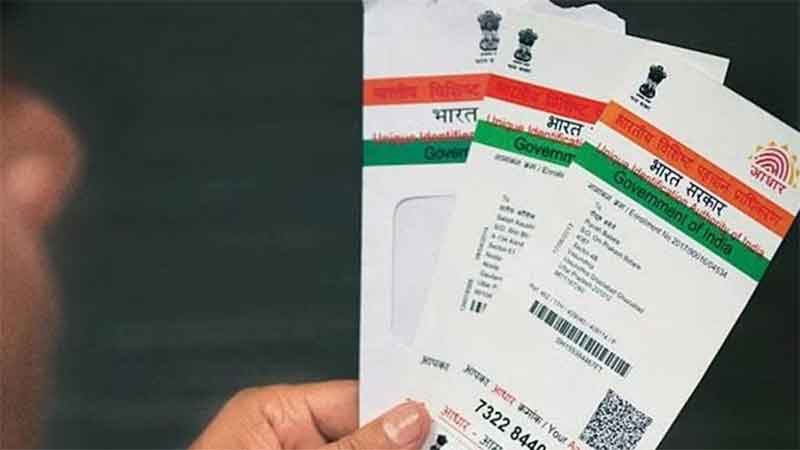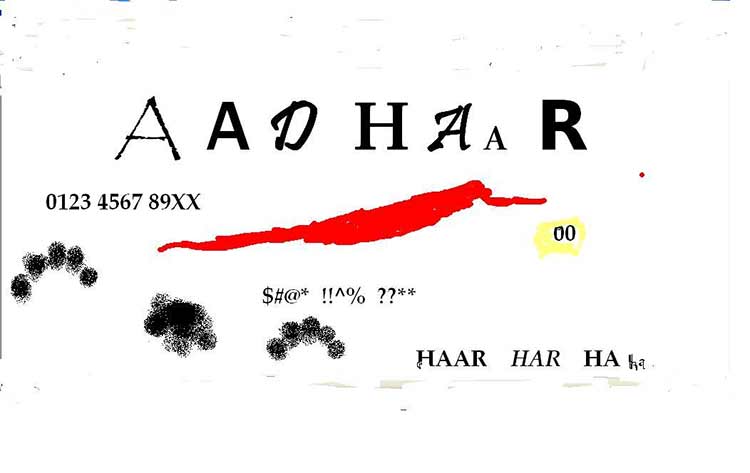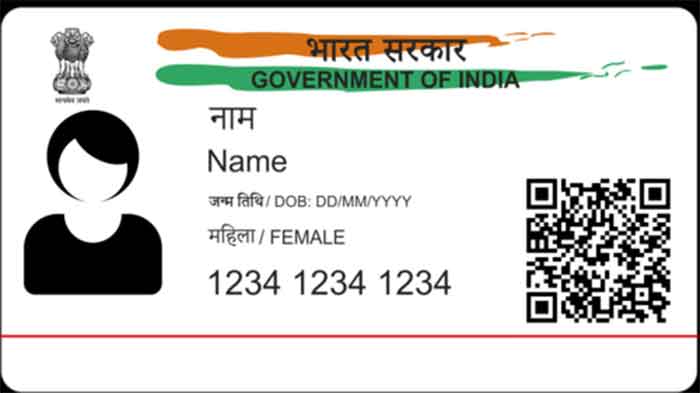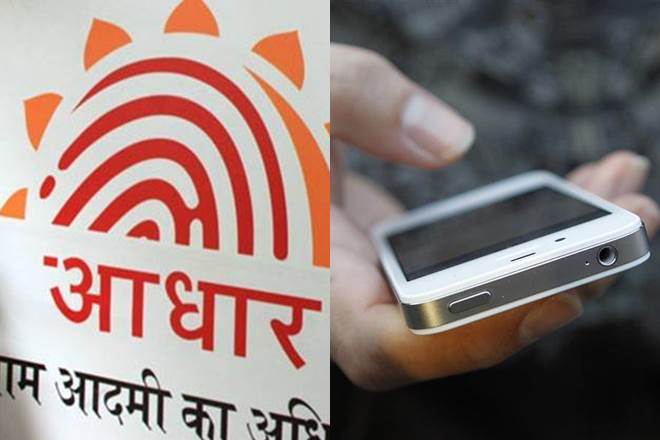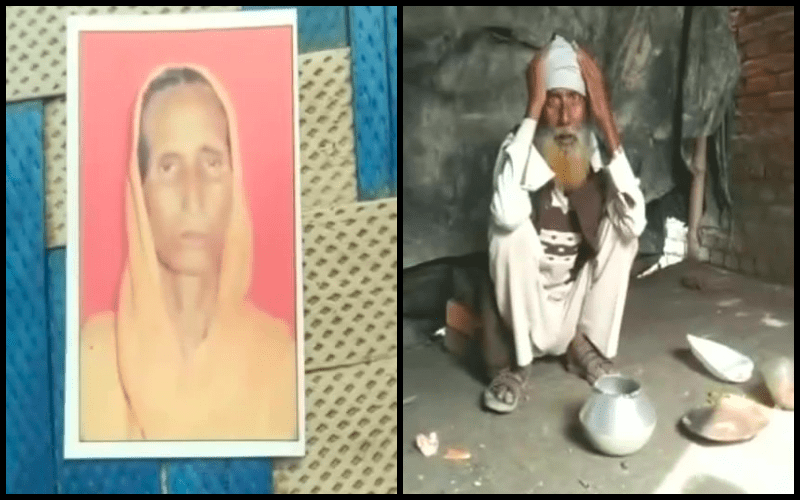
Shakina Ashfaq, 50, is the latest life claimed by the AADHAR, the name given to the 12-digit unique identification (UID) number by the government of India. The reports suggest that she died of hunger. The authorities, as is unsaid standard operating procedure, claim that preliminary inquiries suggest that she didn’t die of hunger, she rather died of some illness. The facts, however, tell the real story.
Shakina was a very poor Indian citizen as established by her Antyodaya card that’s given to the poorest of the poor families under the union government’s welfare scheme called Antyodaya Anna Yojana. The Antyodaya card entitles them to 35 kilograms of ration from the Public Distribution System (PDS) shops at highly subsidised prices. Apart from being poor, she was paralysed too and thus unable to visit the village PDS shop for verification of her fingerprints, made mandatory (or not) as per the government’s position and its perception by the authorities on the ground on that particular day. The shopkeeper thought that it is mandatory and asked her to be present for the same every month. She was taken to shop in a rickshaw every month, till October.
Sadly, she was too unwell to be ferried to the shop in November, and so the shopkeeper refused to allot her quota of the ration to the family despite the begging and pleading of her husband. She was listed as the head of the family on the card so she had to be there for the verification. The family had no other means to get food, let this be emphasised, as evidenced by their Antyodaya Card. She had nothing to eat for 5 days in all. She died. Be it from hunger as the family claims, or illness, as government’s ‘preliminary enquiry’ guesses as they do in all such cases, or from an illness induced by 5 days of continuous starvation.
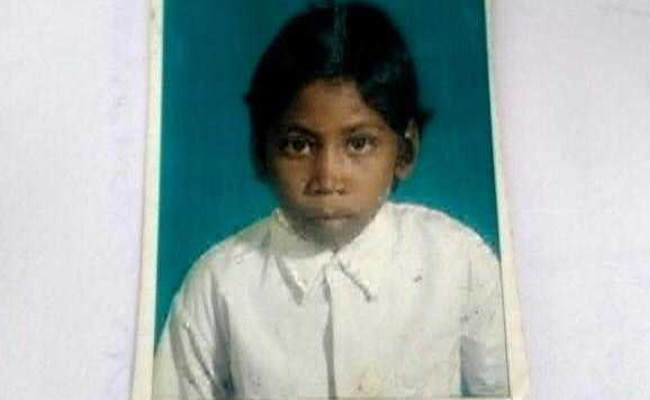
And she was not the only one to die after getting denied ration she was entitled to. Similar stories have been reported from all over India. For example, Santoshi Kumari, a 11 years old girl died after starving for 4 days in a similar case in Jaldega block in Simdega, Jharkhand on September 28, 2017. Her family was denied ration for failing to link their below poverty line ration card with AADHAR. Of course the government’s ‘preliminary inquiry’ found the death to be caused by malaria and not starvation. It had to confess, though, that the family’s ration card was deleted after an order by the state’s chief secretary on April 5 making AADHAR linking mandatory for ration cards and invalidating those who failed to do so. Ironically, the state’s food minister, Saryu Roy, claimed to have no idea of the order until it claimed a life of a child months later. Similarly, a case of three Dalit brothers dying in a span of 15 days was reported from Karnataka. Their ration cards too were invalidated because of not being linked to AADHAR.
And these are the reports which somehow managed to escape the inside pages of local, vernacular dailies and made their way to the national media. There is no doubt that many of such cases must have gone unreported as the authorities are imposing the AADHAR linking as mandatory for getting ration in various states- for example in Chhattisgarh where thousands of very poor families have been denied ration since July because of no AADHAR linking.
Sadly, all this is happening when AADHAR is in fact not mandatory for welfare schemes, not yet at least. The Supreme Court is hearing a set of litigations and has now decided to club all of them together and refer to a 5-member constitution bench to be formed by the end of November 2017. The government, on its part, has been indulging in flip-flops. For example, it told the Supreme Court on October 25, 2017 that it was willing to extend the AADHAR enrolment deadline to March 31, 2018. However, it made a U-turn on October 30, saying that it is unwilling to extend the deadline, and will rather seek early hearing.
Evidently, the chaos, caused by government’s extreme push for the scheme without any clear guidelines has proven to be fatal for the most marginalised sections of the society. Despite there being no clarity on the issue, overenthusiastic officials enforcing the rules that don’t really exist. The push has often reached almost comic-tragic dimensions- like making AADHAR mandatory for birth and death certificates, for government ambulance services, and believe it if you can, even for children to participate in painting competitions organised by government(s)! The questions arising here are- on whose instructions are they doing it and with whom would lie the command responsibility for the consequences?
This is where the Supreme Court’s silence on the issue becomes worrisome. One must wonder how can it ignore all these pushes by the government, and the resultant deaths of the citizens, even while hearing the cases against AADHAR? None can restore the right to life with dignity, guaranteed to every Indian citizen by the constitution, once they are already dead, can anyone? Who, then, is responsible for such tragic, almost criminal in fact, loss of lives, because of the government’s incessant push for AADHAR?
If it does not want the AADHAR to turn into a government made famine killing citizens, the Supreme Court must at least order an immediate moratorium on its imposition until it decides on the case. Sadly, going by the experience in many similar cases, including one on the farm suicides, where the Supreme Court asked for a national policy in January this year, a policy which is nowhere to be seen even now even as thousands more farmers have committed suicide!
#
About the Author: Samar is Programme Coordinator, Right to Food Programme, AHRC. He can be contacted at [email protected]
# # #
The Asian Human Rights Commission (AHRC) works towards the radical rethinking and fundamental redesigning of justice institutions in order to protect and promote human rights in Asia. Established in 1984, the Hong Kong based organisation is a Laureate of the Right Livelihood Award, 2014

